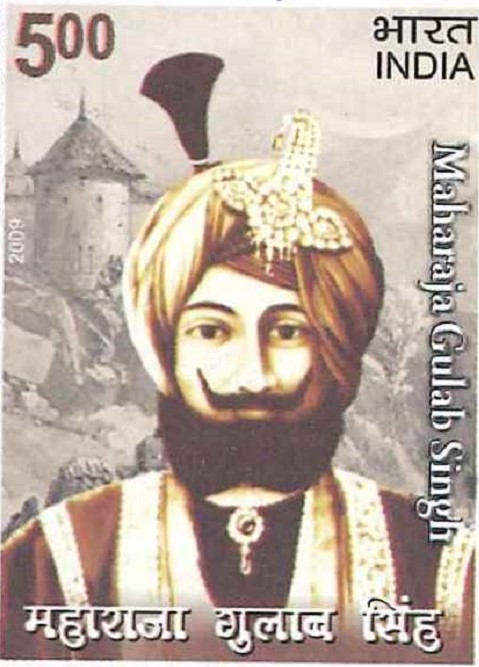
One of the most glorious chapters in statecraft and courageous victories was written by Maharaja Ranjit Singh. A Sikh ruler who consolidated his hold over Punjab, not as we know it today, but the Punjab of yore of which Lahore was the seat of power.
The Lahore durbar, as his kingdom was referred to, in popular parlance, ruled large parts of what is Afghanistan today, many parts of what is Pakistan, and Jammu & Kashmir of today, as also parts of J&K under illegal occupation of Pakistan today. Imagine the strength and geographical reach of the Lahore durbar.
Ranjit Singh was not born in a royal family with a silver spoon in his mouth heading a kingdom. He was a very courageous and tireless soldier who created a kingdom from the scratch, virtually.
It was on June 17, 1822, that he visited Akhnoor, for coronation of Gulab Singh, one of his most trusted generals. Dogra Gulab Singh was one among the three brothers from Jammu who worked tirelessly for the expansion, consolidation and smooth running of the Lahore durbar.
The three Dogra brothers hailing from Jammu were, at one time, the most formidable force to reckon with in Maharaja Ranjit Singh’s service. It was a tribute to sagacity of Maharaja Ranjit Singh that he recognised the indomitable spirit of Gulab Singh and chose to reward him for his services. He also took good care to reward two others also, by giving them very important assignments in the Lahore durbar next of him.
Maharaja Ranjit Singh recruited Gulab Singh as a cavalry-man at a very young age of 16 or 17. Credit goes to extraordinary valour and intelligence of Gulab Singh that he became one of the most trusted man of Maharaja Ranjit Singh in about a decade. Every month, every year, Gulab Singh notched up victories, cursed troublemakers on behalf of the Lahore durbar. Maharaja Ranjit Singh sent Gulab Singh on several expeditions to extend boundaries of his kingdom and each time he returned successful.
Over the years, Gulab Singh added Rajouri, Bhimber, Basohli and Kishtwar to the northern territories of Maharaja Ranjit Singh. Besides these, many other successful military expeditions were also led by Gulab Singh and these helped him gain the trust of Maharaja Ranjit Singh. By the time Gulab Singh was anointed on June 17, 1822, he had served the Lahore durbar for about 14 years already and had taken part in many perilous military campaigns.
Almost 200 years ago, Maharaja Ranjit Singh had visited Akhnoor (Akh+Noor) to anoint Gulab Singh. The function of anointment was held on the western (right) bank of the mighty River Chenab on what is now known as Ji Pota Ghat. This that has now become a favourite point of the tourists visiting Akhnoor.
It is said that when Maharaja Ranjit Singh put the Raj Tilak on the forehead of Gulab Singh, he did it in a very peculiar way, departing from what is considered a normal.
Maharaja Ranjit Singh put the Raj Tilak from forehead moving downwards towards nose, opposite of how a tilak is applied in the conventional way, from top of the nose moving upwards to forehead. The Sikh ruler is said to have explained that he wanted Gulab Singh’s roots to go downwards into the earth and become firm. The kingdom of Jammu thus became a reality in 1822 though it was much later, in March 1846 that the contours of the kingdom of Jammu and Kashmir were defined more clearly. After the death of Maharaja Ranjit Singh, internecine intrigues in Lahore durbar and after that the Sikhs lost a war with the British.
For people living in Jammu and Kashmir, the day of June 17 has a special significance but somehow it has remained a day with few celebrations. We may say that historians have done little to record the valorous deeds of Gulab Singh who went on 24 years later to lay the foundations of independent Dogra dynasty which lasted for 101 years.
A grand commemoration function is held on the same spot at Akhnoor on the banks of River Chenab every year now. Far away in Delhi, it was the first day of budget session of 17th Parliament. For Dogras, it turned out to be a very special day as two MPs from the Jammu region, Dr Jitendra Singh, and Jugal Sharma, took oath in Dogri.
